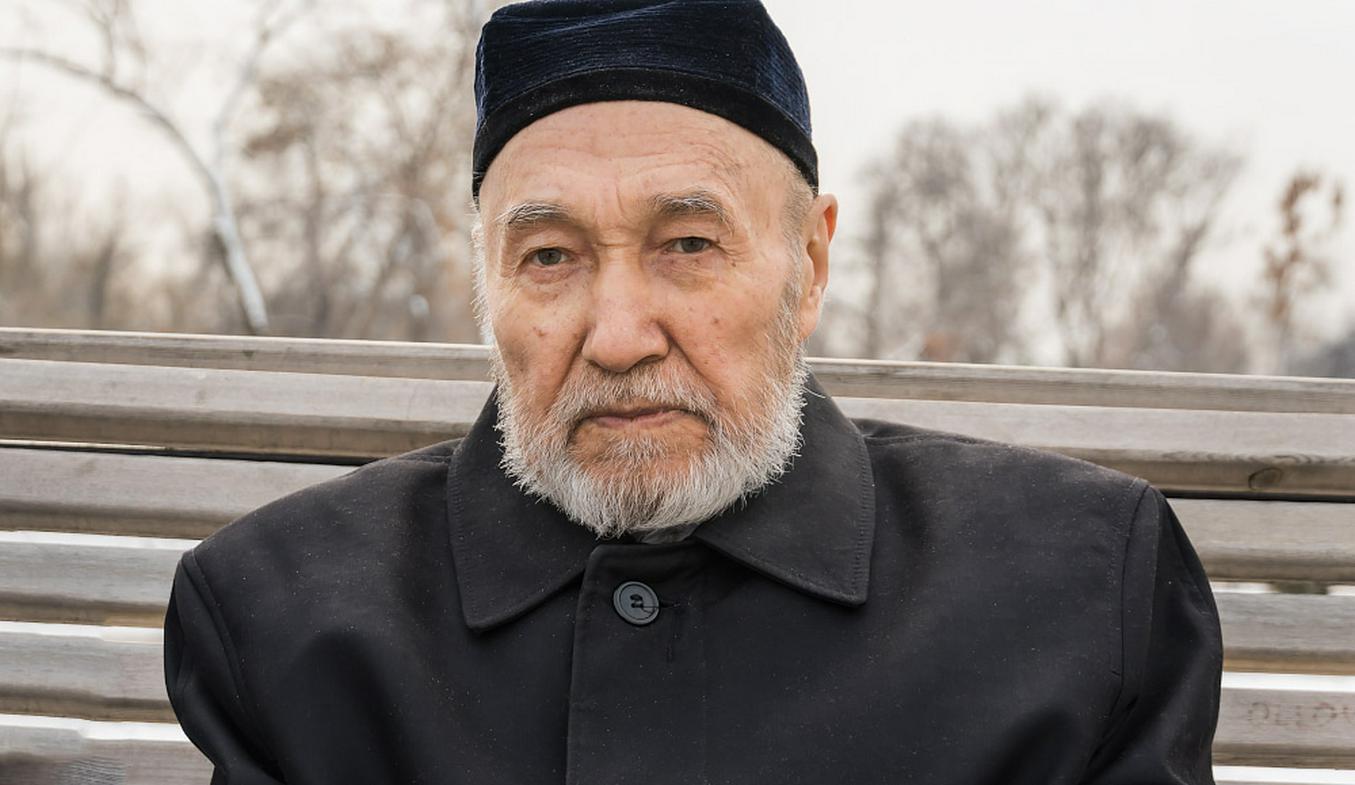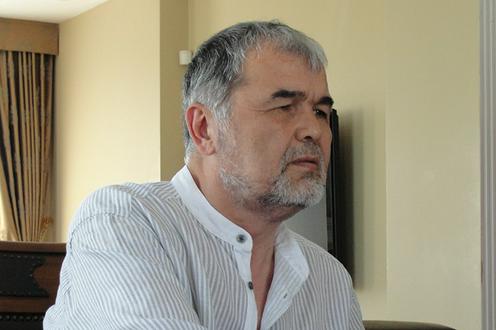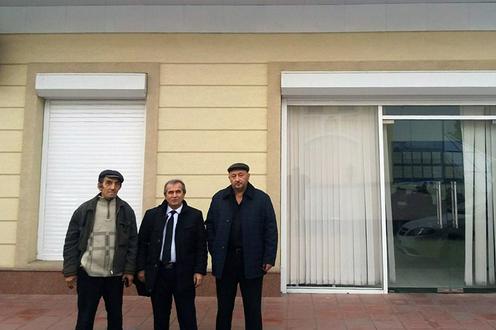ПодписьПодпись
Erk does in fact meet this requirement – the party was formed in Uzbekistan in 1990 and was officially registered by the Uzbek authorities in September 1991. This allowed the party’s candidate to participate in the first presidential elections held in the country. Erk leader Muhammad Salih stood against Islam Karimov and, according to the official result, received 12.4% of the vote. Salih was soon subjected to government harassment and forced to leave the country, Erk’s official registration was annulled, and members of the party found themselves in the de facto position of an illegal opposition.
Erk’s general secretary Otanazar Oripov (also occasionally written Atanazar Arifov) spoke to Fergana about the meeting with the justice minister and just what was discussed between the two sides.
– How did you obtain a meeting with the justice minister?
– It was all surprisingly straightforward: he has a reception day for members of the public every Friday between three and five. We made an appointment two days in advance and he agreed to see us. The talk lasted for almost an hour.
– What were your aims for the meeting? What did you want to achieve?
– The main aim was to submit an application to renew the certificate granting our party legal status. The original certificate was registered by the justice ministry on 3 September 1991 by then then justice minister Bobur Malikov, now living in the USA. The application included the request for a new document certifying the legal status of our party.
– What was it that made you decide to seek official recognition at this particular moment in time?
– So that we can take part in the political life of the country and, ultimately, in the presidential elections (the next planned elections are scheduled to take place in December 2021 – Fergana). And – very important for us – so that the party’s leader Muhammad Salih can return home.
– So he would like to return to Uzbekistan?
– Yes, of course. But in order for him to come back, he needs to be legally exonerated. Without a guarantee of immunity, of course, he cannot return.
– Was the meeting with the justice minister initiated by Salih?
– Yes, he was the one who suggested going to see the minister. We wrote the text of the application together. This all happened after the head of the Central Electoral Commission Mirzo-Ulugbek Abdusalomov had said that Erk and Birlik could return to the country and participate in elections, that there was nothing standing in the way of this. And then the president appeared to say the same thing.
– He was talking about the opposition within the country. He’s hardly likely to have meant the external opposition represented by Salih, who lives in Turkey.
– Well, Salih was the main enemy of former president Islam Karimov. And still today there’s no guarantee of his safety if he returns to Uzbekistan.
– What was it that you discussed with the minister for almost an hour?
– He started by trying to convince us that the Erk Party didn’t exist in Uzbekistan.
– What did he say to back this up?
– Nothing at first, and we realised that this was the same old Islam Karimov approach. We asked the minister why our party was dissolved, whether there had been any court decision annulling our certificate of registration. For according to the constitution, such a decision has to be taken by the Supreme Court. He said: “Such a long time has gone by, so much has been said – about the leader of the party, about the crimes he’s committed”. Of course, they convicted Muhammad Salih in absentia for allegedly orchestrating the bombings in 1999.
We objected that no proof of his involvement had been provided. And as everyone knows, Salih himself has been the subject of a number of assassination attempts...
And then Ruslanbek Davletov started explaining that the party had not been re-registered in 1993. It’s true that we didn’t apply for re-registration back then. Instead we filed a petition to the Constitutional Court to have the Cabinet’s decree on re-registration overturned since we considered it unconstitutional.
– What was the basis for the 1993 decree?
– A decree was made ordering the re-registration of all civil associations in the country. But it was all set up simply to get rid of Erk. We understood this very well and didn’t hand in an application to re-register.
– Why do you consider the decree unconstitutional?
– Because this kind of interference is not provided for either in the constitution or by any other laws. It would have meant filing all of the paperwork yet again, and there was a clear risk that we would be rejected.
– And what was the reaction of the Constitutional Court?
– We didn’t even receive an answer. And at the recent meeting, the justice minister emphasised that there had been no ruling overturning the Cabinet’s decree on re-registration. So we understood that this wasn’t simply his personal position, that the refusal to recognise Erk’s legitimacy came from the very top.
– What else did you discuss?
– We discussed the existing parties in the country. I said that these parties in reality were very far from politics since none of them had any political ideas. For example, one of the biggest problems in Uzbekistan is unemployment and labour migration. Which of the parties has any proposals for ending the problem of labour migration? In reality all of the parties simply aspire to power, because power gives the authority to distribute the resources extracted from the population. The minister could not come up with anything convincing to say in reply to this. And I think he will look at the problem in a new light when he comes to drawing up an official reply to our application, he will take his own approach to the issue. The justice minister is a cultured, educated man; he has three degrees.
– But can he really formulate his own approach, distinct from that of the country’s highest leadership?
– That’s why I said to him at the end: try to convince those above you that our party has been treated unfairly in the past. After all, it’s your job to establish the truth, to fight for it. Yes, he replied, we will fight for justice.
– You mentioned the issue of labour migration. Is it included in your party programme?
– Yes, it is. Just like the question of land. I’m convinced that we need to amend Article 55 of the Constitution (“The land, its minerals, waters, fauna and flora, other natural resources shall constitute the national wealth and shall be rationally used and protected by the state.”) and introduce into the country’s fundamental laws the concept of private property.
Currently only five percent of the population at most holds sway over the natural resources and wealth of Uzbekistan. Everything is under their control. Such a state of affairs necessarily opens the door to theft and misappropriation. That’s why I call the current regime a kleptocracy. Karimov used to say that the state should feed the people, and the current president has started to repeat this. Is this really true? After all, in principle everything belongs to the people. But in reality, everything is taken from the people.
– What has the party done over the last 25 years?
– In this time we have only been able to hold five party congresses – the last one took place in 2003.
– So that means the government allowed you to hold these congresses?
– It did, but they did their best to divide us. They infiltrated the party with their own people to try to remove Muhammad Salih as leader. But in the end they failed.
But today the party can’t carry out its normal work. We even said to the justice minister: let us hold a conference. If you have candidates for party leader and general secretary, let the conference decide who to elect. He had nothing to reply to this.
– Are you in favour of any kind of relations with the Birlik (Unity) Party?
– We’re in contact with members of this party, and with its leader Abdurahim Pulatov, who lives in the USA. The relationship is not a very good one.
– Does that mean that the two parties are currently opponents of one another?
– In practical terms yes. Pulatov and Salih cannot work together.
– And Birlik doesn’t want to obtain legal status in Uzbekistan?
– They want to, but I don’t know how.
– What plans does your party have now, following the visit to the ministry of justice?
– Officially, the ministry has a month to consider our application and send us a written reply. On the basis of that decision we’ll plan our steps for the future.
Sid Yanishev
Translated by Nick L.
-
 14 February14.02From Revolution to Rupture?Why Kyrgyzstan Dismissed an Influential “Gray Cardinal” and What May Follow
14 February14.02From Revolution to Rupture?Why Kyrgyzstan Dismissed an Influential “Gray Cardinal” and What May Follow -
 23 December23.12PhotoTokyo DriveJapan to invest about $20 billion in projects across Central Asia over five years
23 December23.12PhotoTokyo DriveJapan to invest about $20 billion in projects across Central Asia over five years -
 17 December17.12Sake for SixCentral Asia’s Rapprochement with Japan Comes with Hidden Pitfalls
17 December17.12Sake for SixCentral Asia’s Rapprochement with Japan Comes with Hidden Pitfalls -
 24 November24.11Here’s a New TurnRussian Scientists Revive the Plan to Irrigate Central Asia Using Siberian Rivers
24 November24.11Here’s a New TurnRussian Scientists Revive the Plan to Irrigate Central Asia Using Siberian Rivers -
 11 November11.11To Live Despite All HardshipUzbek filmmaker Rashid Malikov on his new film, a medieval threat, and the wages of filmmakers
11 November11.11To Live Despite All HardshipUzbek filmmaker Rashid Malikov on his new film, a medieval threat, and the wages of filmmakers -
 22 October22.10Older Than the Eternal CityWhat has Samarkand accomplished in its three thousand years of existence?
22 October22.10Older Than the Eternal CityWhat has Samarkand accomplished in its three thousand years of existence?






